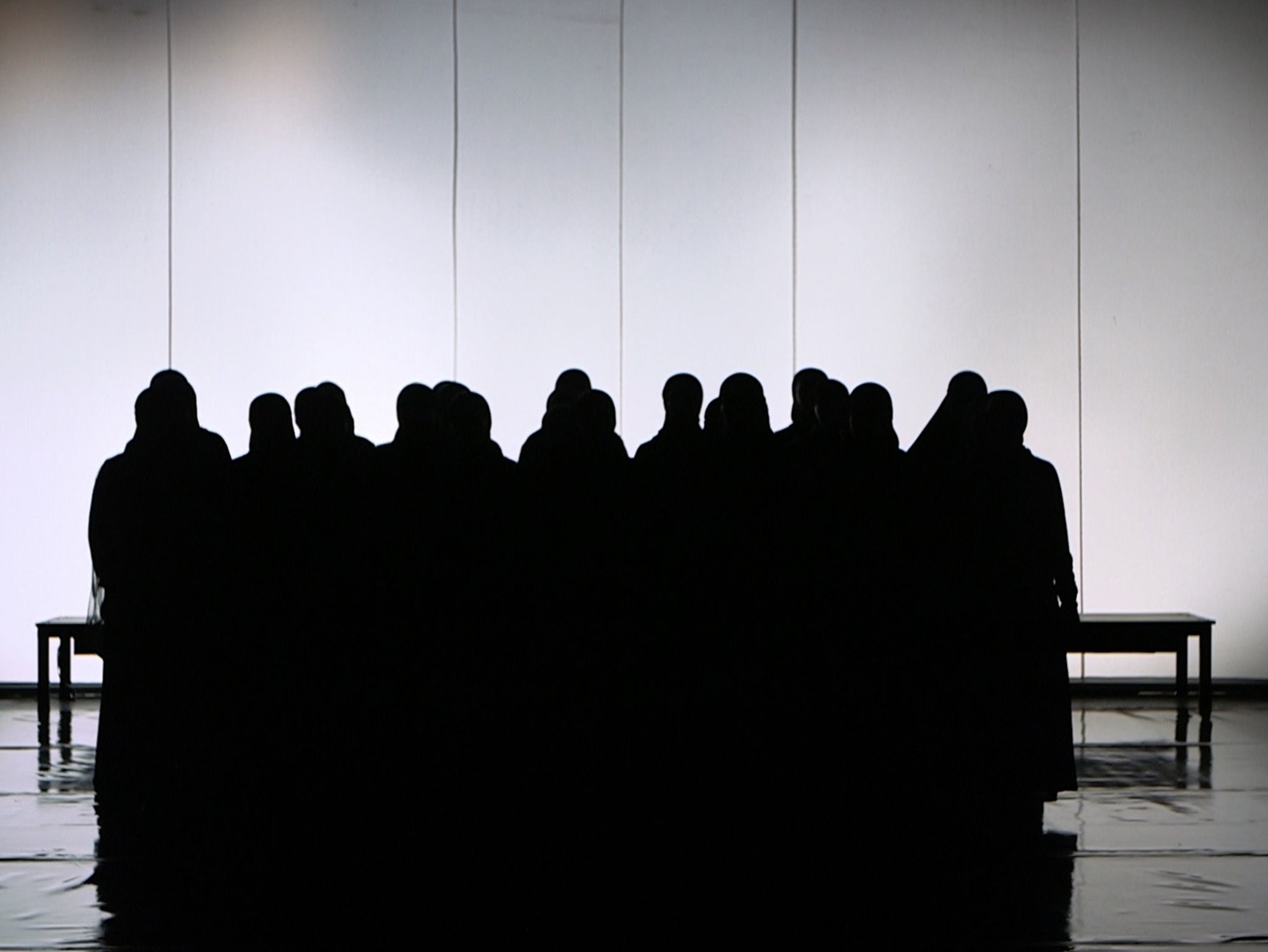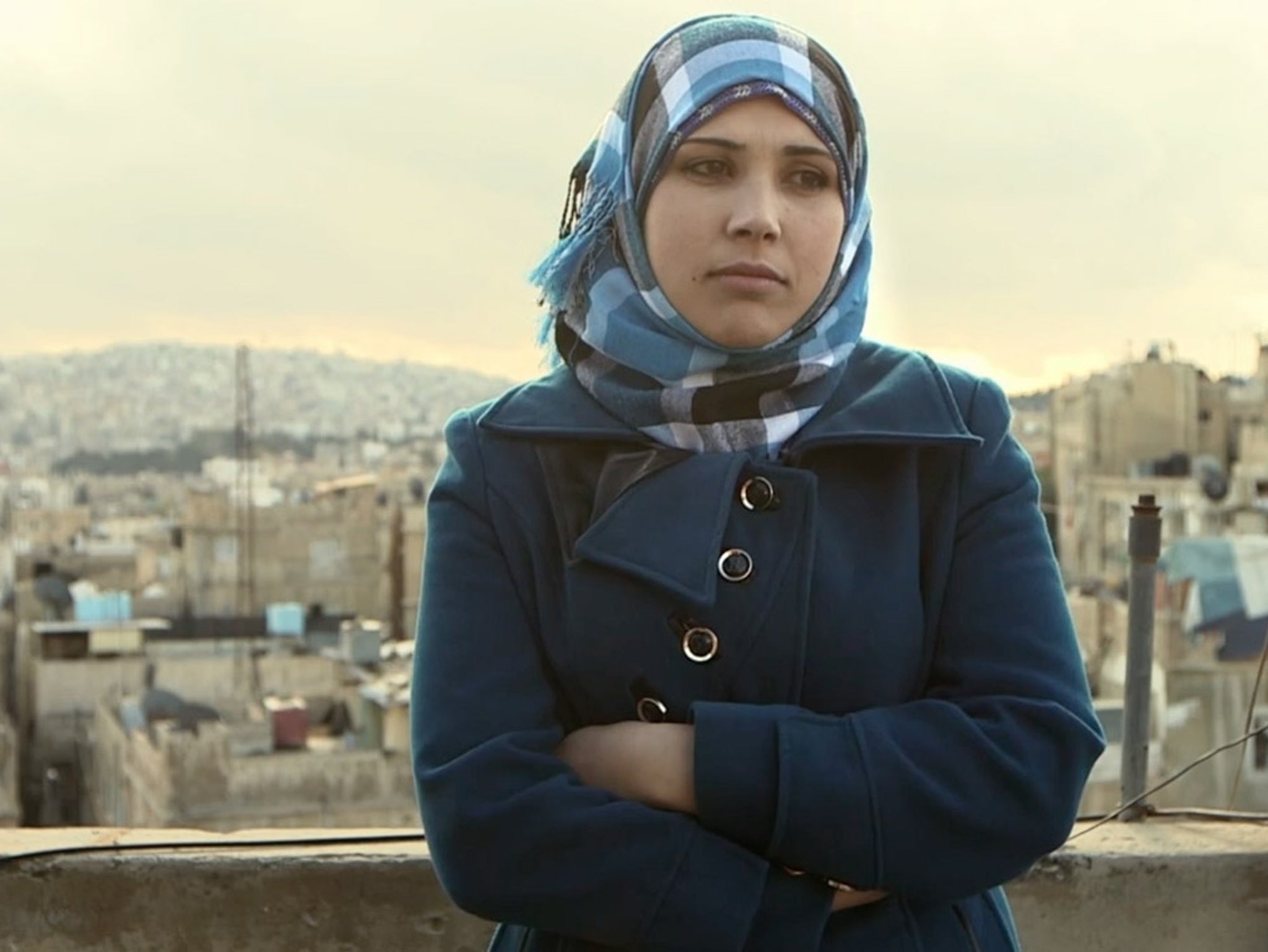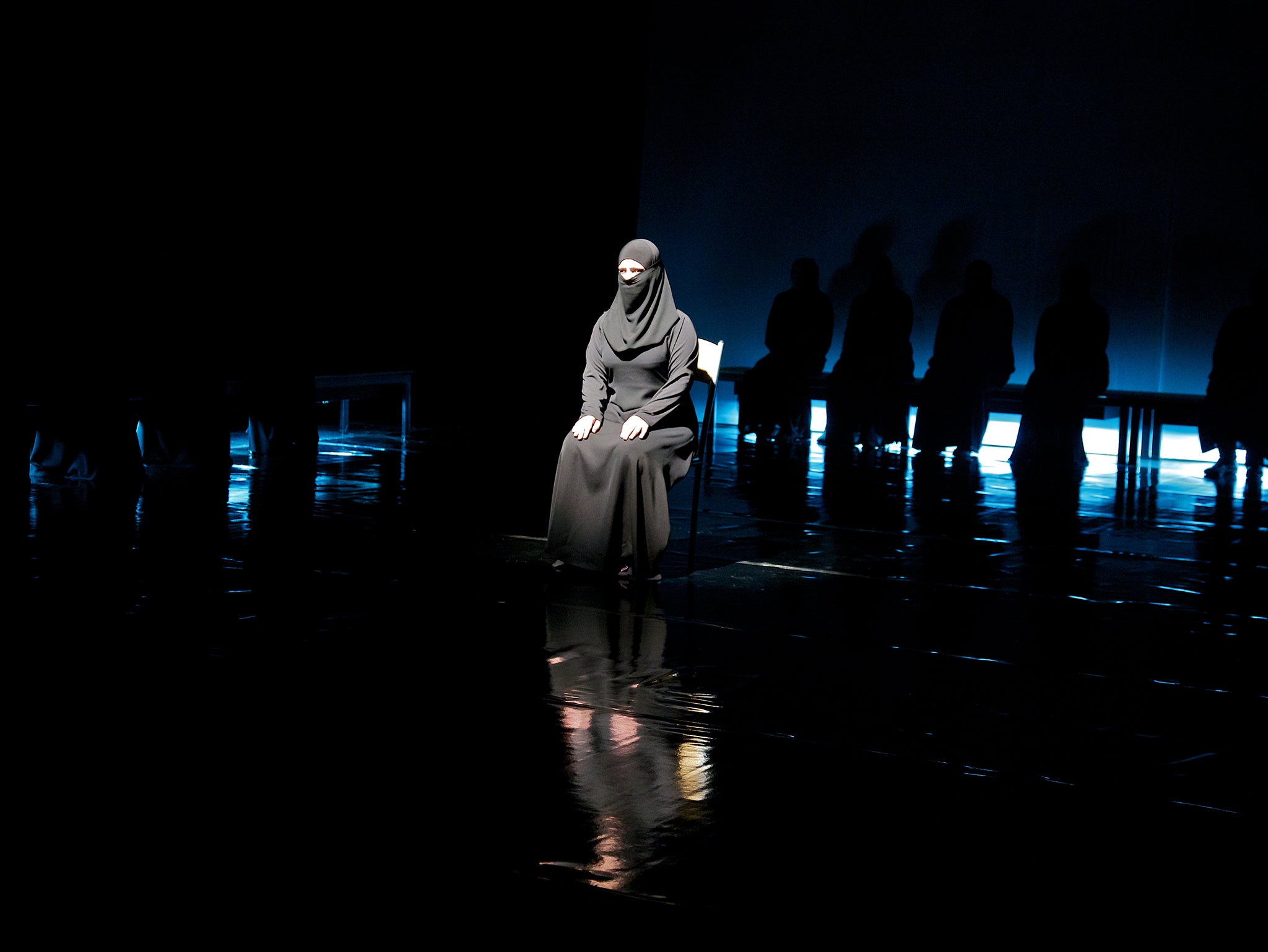Queens of Syria: Exploring a modern retelling of Euripides’s The Trojan Women by female victims of the Syrian civil war
'Even when things are terrible, people laugh, people produce art, they express themselves in all sorts of ways'

"I have a scream I have to let out – I want the world to hear it.” So says Suad, a young Syrian woman who fled her homeland for Jordan. It’s one of the most powerful moments in a new documentary, Queens of Syria, which follows a 2013 theatre project run with Syrian refugee women in the Jordanian capital, Amman, to stage a new version of Euripides’s tragedy, The Trojan Women.
The laments of the women of Troy, grieving for dead husbands and children and the destruction of their homes, may have been written in 415 BC – but we see how they ring all too-true to these modern victims of war, and how the women become passionate about using this ancient Greek text to tell their own stories. “This is real ... it’s not just in Troy,” says one young woman, Maha, to the camera. “This has happened for real. It has happened to us.”
Yasmin Fedda’s film follows rehearsals to the final performance, given in Amman in winter 2013. And Queens of Syria is now getting its London premiere, as part of the Shubbak: A Window on Contemporary Arab Culture festival.

Almost four million people have fled Syria since the civil war began, and more than 600,000 of them have settled in Jordan. But despite such vast numbers, it can be a lonely, isolating experience – and for many who took part in the seven-week project, it was an invaluable way to meet others. Around 60 women initially showed up though only 25 saw the project through to the final weeks. For them, “there was definitely [a growing] camaraderie and friendship,” says Fedda, as they shared their stories and realised they were not alone in what they’d experienced.
As well as being an Arabic translation, their version of The Trojan Women wove in the performers’ accounts of their own experiences of war, which they spoke simply, sitting at a microphone under a spotlight. The women’s encounters with the Assad regime or with violent militias are harrowing, and Fedda’s film features the moments when women first share them in workshops – often breaking down at the memory.

One woman tells how 15 armed, masked men burst into her house, and threatened her at gunpoint when her brother refused to go with them; later she heard he had been found shot dead. Another tells how her father was repeatedly detained; once, shortly after he’d had a prostate operation, they found him dumped on the roadside, catheters hanging out of him. Another tells how her father and two brothers were tied up, blindfolded and shot, before being thrown into a mass grave.
The project was the idea of a British couple, film-makers Charlotte Eagar and William Stirling; both classicists, they saw the potential parallels between the Ancient Greek and real-life modern tragedies and the way in which the former might enable performers to discuss the latter. To facilitate this, Eagar and Stirling brought in Syrian theatre director Omar Abu Saada, as well as Nanda Mohammad, a soap star familiar to the amateur cast. Award-winning filmmaker Fedda, who is based in London but has lived in Syria where she still has family, was an obvious choice to document the process. Queens of Syria has already won Fedda the prize of best director from the Arab world at the Abu Dhabi Film Festival.
Fedda says she very quickly became convinced of the merits of the theatrical project. “From what I witnessed, it was definitely an important process – to share, and to feel the other people caring for you, and maybe to grieve if you need to.” For her, the film was more about documenting and celebrating this process than about the final performance.

They also made a shorter TV cut for BBC Arabic, which has an audience of 36.2 million. Knowing their stories would be broadcast to so many was hugely empowering, some participants felt the world wasn’t hearing ordinary Syrians; Suad describes how a massacre on her street in which 400 died and her three brothers were injured attracted no reporting at all.

Watch Apple TV+ free for 7 day
New subscribers only. £8.99/mo. after free trial. Plan auto-renews until cancelled.
ADVERTISEMENT. If you sign up to this service we will earn commission. This revenue helps to fund journalism across The Independent.

Watch Apple TV+ free for 7 day
New subscribers only. £8.99/mo. after free trial. Plan auto-renews until cancelled.
ADVERTISEMENT. If you sign up to this service we will earn commission. This revenue helps to fund journalism across The Independent.
But, on the flipside, the exposure was a terrifying prospect for many. Most long to go home to Syria, and several feared being recognised from the project. Others feared for the safety of loved ones still in Syria. “If they seem to be saying something against the regime or against any particular group, that could have repercussions,” acknowledges Fedda gravely. “Militias or regimes will take close [family] members of known people as a form of torture. It can happen, it’s not unimaginable.”
But, she explains, the anxiety was often less specific than that: “The fear is so deep inside that it isn’t always easy to say ‘I am scared because this direct thing will happen’ – it’s just, ‘I am scared’. They grew up in a dictatorship which instils fear.”

One of the beautiful things about the film, however, is watching the grip of that fear begin to slip: in early scenes, many women are nervous about the film, and ask that their faces not be shown, but by the final performance, only one woman is pixellated. Participants became used to the camera, and grew to trust Fedda; in the end, most were proud to go on record.
There were also fears closer to home, however: acting was not always deemed appropriate behaviour by their husbands or family, and others feared that performing was immodest. “Some found a way to make it acceptable – ‘I’m not really acting, I’m sharing my story’,” explains Fedda.
However, in the end, the reaction to the production was hugely positive. “Everyone was crying, and all the husbands were so proud and so happy. A bunch of them even [recognised] that their wives had had nothing to do; [the project] gave them excitement, community, a reason to wake up – and I think when the woman feels that, the whole household gets a sense of energy.”
If some women downplayed their theatrical ambitions, others embraced their inner diva: “For some, it was very much ‘I’m on stage – I’m an actress!’” As well as revealing the hardships these women faced, the film gives us a glimpse of their humour and high spirits. To see Syrian women larking about – tickling each other, singing songs, putting on lipstick – makes you realise how rarely we see cheerful everyday portrayals of any Muslim women, let alone refugees.
“It was important to me to show they are just normal people,” agrees Fedda. “. It’s important to show the lightness in the darkness.”
‘Queens of Syria’ screens at the Barbican on 15 July, with a Q&A with Yasmin Fedda; shubbak.co.uk
Join our commenting forum
Join thought-provoking conversations, follow other Independent readers and see their replies
Comments